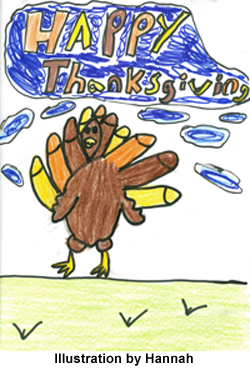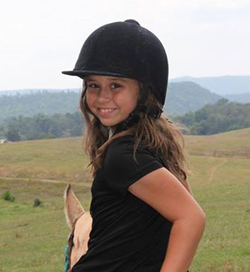(Re-posted from December 17, 2013)
 “Divorce is very hard.” “Divorce and holidays are even harder but with strong family support willing to make whatever adjustments needed, it helps in drawing emotions and attention away from tragedy.” “I keep my children and myself focused on the blessings that God gives us every day; it is the only way to make it through the tough times.” (Cindy Partin Freeman)
“Divorce is very hard.” “Divorce and holidays are even harder but with strong family support willing to make whatever adjustments needed, it helps in drawing emotions and attention away from tragedy.” “I keep my children and myself focused on the blessings that God gives us every day; it is the only way to make it through the tough times.” (Cindy Partin Freeman)
I am so proud of the young woman in the above quote — Cindy Partin Freeman, my God-child. Cindy’s future was planned. She and her husband would balance jobs, household duties, and above all, raise their two children together. And then it happened — he wanted out!
Though the road has been a rough one to travel, Cindy now leads a group called, SALT, which stands for: Single Adults Learning Together. SALT is a ministry to singles whether divorced or never married.
I asked Cindy to share with our readers some of the things she and her group use to Survive the Holidays After a Divorce. The following are some ideas she provided.
1. Change up Tradition: Ask the child what he or she would like to do. It seems strange to say this, but tradition draws attention to what is different (a parent missing.) If they change it up, the child is caught up in a new activity and the loss of the other parent isn’t as prevalent. Example: If they normally open gifts on Christmas Eve, choose to go to a Christmas Eve service instead.
2. Santa: If the children are real young and still believe in Santa, we suggest having Santa at the primary residence. Some parents will allow the other parent to be there. That is rare and it depends on the relationship between the two parents. They have to ensure that it is all about the child and not any issues they may have if they do it this way.
3. Finances: If finances are an issue (which is most likely the case), we suggest being honest with the children and letting them know that you may not be able to spend as much on them as you have in the past. In doing this, the parent needs to have alternatives to off-set this such as: creating coupons of quality time with the child. Have a special activity planned like driving around to see lights or an at home movie marathon planned, etc.
4. Avoid a Busy Schedule: Divorcees have a tendency to stay busy to either keep themselves out of the home so they don’t have to be reminded they are a single parent or they think they need to stay constantly on the go so they don’t have moments of being alone. Even if they have children, they will do this and keeping the children going may turn out to cause more stress and be more harmful than good. The suggestion is to actually reduce your schedule. At the beginning of a divorce, emotions are all over the place and adding the stress of a busy Christmas schedule is a recipe for disaster.
5. Have a Plan: Even though we say not to create a busy schedule, we do suggest having a plan. Don’t let the holiday creep up on you and not know what they should or need to do. Plan it out. Where are they going to be? What are they going to do? Who is included?
As I see Cindy making announcements on Facebook to the singles and divorce group concerning times of meetings and activities she plans with the adults and their kids, I am reminded of the words of Joseph, who experienced many losses at the hands of his brothers.
As you may recall, Joseph’s brothers sold him to traders going to Egypt, among other things they did to him. As a famine spread throughout the world, God had placed Joseph in a position as the Governor of Egypt. Having foreknowledge of this famine, Joseph had the people of Egypt storing up food for seven years.
And then one day, who should appear in need of food? You guessed it – Joseph’s brothers. But, the beauty of it all was that, despite how he had been treated, Joseph had recognized that the Lord had been with him throughout his ordeal, and his attitude had remained Christ-like. He said to his brothers:
“You intended to harm me, but
God intended it for good to accomplish what is now being done,
the saving of many lives.”
Genesis 50:20
Cindy chose not to be a victim to her circumstances and has taken her rough times and turned them around to help save many lives. I believe Cindy will agree with me when I say: “There’s no greater joy than taking a loss that could have destroyed you and your children, and turning it around to help others.” What better way to Survive Divorce, especially During the Holidays.
Do you have additional ideas as to how to survive the holidays after a divorce? If so, share them with others in the comment section.
Be sure to join Hannah and me next week for a special Christmas message.














